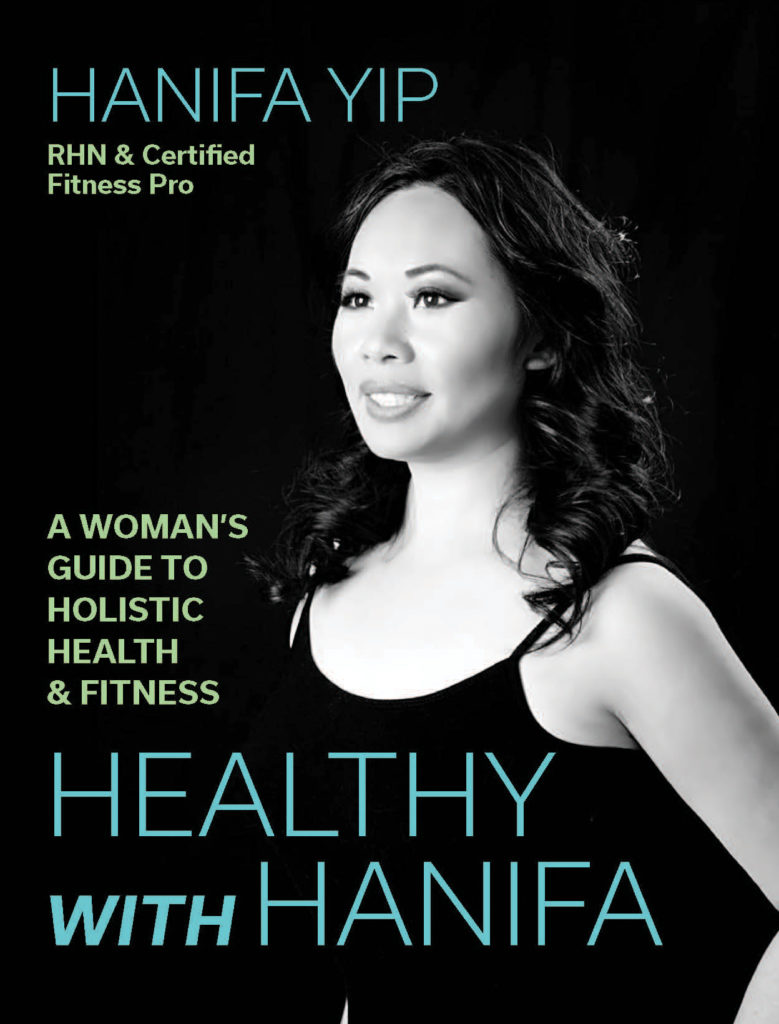Orthorexia: When an obsession with health becomes unhealthy
By Hanifa Yip, RHN
I became orthorexic simply because I had major fog, acne and bloating. I had tried my first cleanse, which included high antioxidant protein shakes. Not only did this change my physical appearance for the better, but I felt that it had changed my thinking for the better. I was radiant, energetic, and I wanted more. Soon I was on a new whole foods diet every two weeks because I was searching for the perfect diet, so that I could glow and attain the perfect body. I had cut out tomatoes, dairy, gluten, red meat, sugar, cocoa, hydrogenated oils, vinegars, and I never cheated. EVER.
It wasn’t until much later in my fitness and nutrition career that I realized that my strictness was impeding, not improving me. I suffered from weight fluctuations and could never sustain muscle. On top of that, I was obsessive, and it was hard for anyone to get along with me. People had stopped inviting me out to dinner because they didn’t know what I could eat anymore. I would lay awake at night, thinking about food and wondering what else I could avoid so that I would stop bloating and get more lean. I even carried a scale in my purse.
This was orthorexia at its finest, and I had suffered from it throughout my entire fitness career. However, it is something I suspect that many other nutritionists, fitness professionals, and health-oriented people have suffered from as well. The fitness profession, one that is based on credibility through physical appearance, can sometimes push admirers and adherents to extreme, impractical dietary practices in the name of “optimal health.”
Introduced in 1997 by Steven Bratman, M.D., orthorexia nervosa is a condition characterized by excessive preoccupation with consuming healthy foods. The irony is that such obsession with healthy food is not actually healthy. Although it has not been recognized as an official eating disorder such as bulimia or anorexia by the American Psychiatric Association, it is becoming more prevalent in today’s society. With fitness clubs popping up in every neighbourhood and Instagram models parading their lean physiques and perfectly-toned abs, there is now a trend towards more juicing, portioning, clean eating, and avoidance of not only junk foods, but also certain grains, proteins, and in my case, even specific fruits and vegetables.
A few notable characteristics of orthorexia include:
1) Determining moral character through food. You’re a good person today because you ate only clean foods. You feel guilty or are a bad person because you enjoyed an ice cream sundae.
2) Obsessing over portions, calories, and nutritional content. This is something you think about during work breaks, while driving your car, while walking your dog. You must track anything that goes in your mouth, and you can’t even be 20 calories over your daily caloric budget.
3) Fat, sugar, and dairy–it’s bad, it’s all bad, all the time. Avoid, avoid, avoid!
-4) You’re not enjoying your food, but you’re eating something anyways because it’s supposed to be good for you.
-5) Becoming a hermit, so you avoid going to a friend’s home for dinner, or even eating out. You’re focused on a “perfect” diet.
6) Health issues: obsession, brain fog, irritability, insomnia, slowed metabolism, mood swings, weakened immune system, lack of muscle recovery, digestive issues, irregular or cessation of menses (if you’re a woman); in severe cases, nutritional deficiency leading to death.
Now I’m not saying that there’s anything wrong with healthy, dietary changes. Abstinence of certain foods and guzzling plenty of green smoothies may indeed improve your lifestyle or your current condition, but when your health goals are taken to the extreme, it may result in what I had experienced: decrease in physical and mental performance, and overall, general misery. Besides, if you have a true gluten intolerance or you need to alleviate a migraine through diet, it may be a good idea to first consult with a ND or a registered nutritionist—one who understands what it means to be human and have a life.
So, what then if you suspect you’re orthorexic , or what if you like being healthy but want to prevent orthorexia?
Practice intuitive eating. What is your body telling you? Eat when you’re hungry, stop when you’re not. Avoid demonizing yourself for having a delicious slice of chocolate cake.
If you’re on a strict dietary protocol because of health issues, still follow intuitive eating within your confines. You can’t have tomatoes, citrus fruits, or potatoes anymore, but maybe your body would like more asparagus, cantaloupe, and sweet potato. The point is to still listen to your body.
Choose your Instagram and social media role models wisely. Orthorexic people can look really good. One particular blogger I am thinking about looks fit and slim, but all she drinks are liquids (I kid you not). Follow people who practice balance in all aspects of their lives, not simply people who look good in photographs.
Stop focusing on purity of foods and physical appearance so much. If you’re obsessed with losing an inch off your thighs, you are more likely to calculate every single morsel that goes into your mouth. Relax, and focus on nourishing your mind and body. That includes the occasional cheat food.
The point of life is to live. That means energy, balance, and enjoyment. I say time and time again, nutrition is not simply about nutrients, it’s about fun, food, and friends, so get yourself out there and enjoy a good meal!

Hanifa Yip is a certified exercise professional with over 20 years of fitness teaching experience. She is also a registered holistic nutritionist and is the author of Healthy with Hanifa: A Woman’s Guide to Holistic Health and Fitness, which is now available on Amazon and Indigo.




